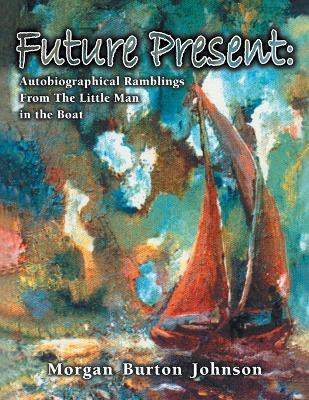Future Present(English, Paperback, Johnson Morgan Burton)
Quick Overview
Product Price Comparison
Synopsis of Future Present This book, set against of the backdrop of his partner┬┤s decline and death from AIDS, relates the review the author experienced of his life when confronted with this tragedy. It is told in anedotes, stories, and insights with his poems (18) and paintings (104) while relating how he found himself in a life of art, found his poetic and artistic voice, as well as his discovery of his sexual identity as a citizen of the twentieth century.Excerpt of Future Present, Chapter 2, Awaiting The MessageI havenŌĆÖt met much evil. Nor have I been involved with it. The closest act of evil thatIŌĆÖve completed came through alcohol, self-loathing, precious love and fetid jealousy, andfatigue. Actually, not to water it down, the prank was more wicked than evil, evil beinghell-bent and wicked just a treacherous warning. Evil has no escape; wickedŌĆÖs wretchedness contemplates safety and pardon because of its cleverness.I was living below the Smokies, below the spot Dollywood now stands and where onefinds Cades CoveŌĆÖs dead end--the first geographical dead end IŌĆÖd run into, in theRiverhouse*. First floor, southern front apartment on a street paralleling the river indowntown Knoxville. With alcoholic, classical piano-playing Rick. We had fled acrossthe country, drinking days into nights into street lamplight, and had managed to enamor aless-than-self-assured young college student to us by being ŌĆ£les deux avec les bonmotsŌĆØ--artists struggling through capitalism, lashing out in self importance. We were, atleast to this bookish waif, the jetsam of an over-flowing tempest of corruption: too goodto be noticed.It worked well for us, being idols. We worked, Rick and I, diligently to dispel thisfalse idolatry by long discussions of self-admonishment, hope and assurance to him thatby being patient, he would find himself, and hence, we would earn his worship.And Sam was sweet. Eager. A curly headed raggedy Andy. Floundering sophomore,lithe and with no distinct shoulders, waist or height: just there, big-eyed and listening. How he longed for acceptance--which he had at his very intelligent fingertips if only heŌĆÖdrelax--and for the excitement of being recognized. For what, I canŌĆÖt remember, but giventhe stature of Rick and me in his eyes, IŌĆÖm not surprised that we enjoyed him if the rest ofthe world had no defining shelf for him. At twenty-three, his was a big request.Yet it was his whining that finally wore me down: he was once and forever achingover the non-events in his life. No matter that he was truly smart, could read and write inthree languages and had the instinct of art. No. He was spinning as a moth on coldcement, no direction but the endless circle, flicking dust.What I did was not in any way planned--our days werenŌĆÖt: they revolved around thebottles we could score--but now I can recall that SamŌĆÖs haphazard appearances, rappingat my frosty gallery window, were beginning to interrupt the frequent painting hours Ispent watchful for Rick to return from his shift of waitering at AnnieŌĆÖs Place. And Samquickly learned the timing of being there, at the apartment just long enough before Rickarrived to deplete my concentration by questioning me about all the fine odds and endscollected in dust about the apartment. And how and why I was incorporating them intomy still-life paintings such as Distilled Life* and Entente.*I considered him primarily RickŌĆÖs friend, which allowed more than the usualannoyance. Why did RickŌĆÖs friends have to like me? He admired that I stumbled frompainting subject to subject, seascape to still-life, and I remember that he had neverknown, until Notes Falling*, that calla lilies grew wild...somewhere. In Tennessee, theywere imported from hothouses; it had not occurred to hi


